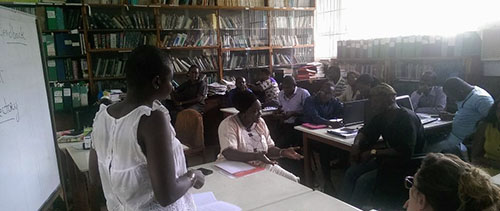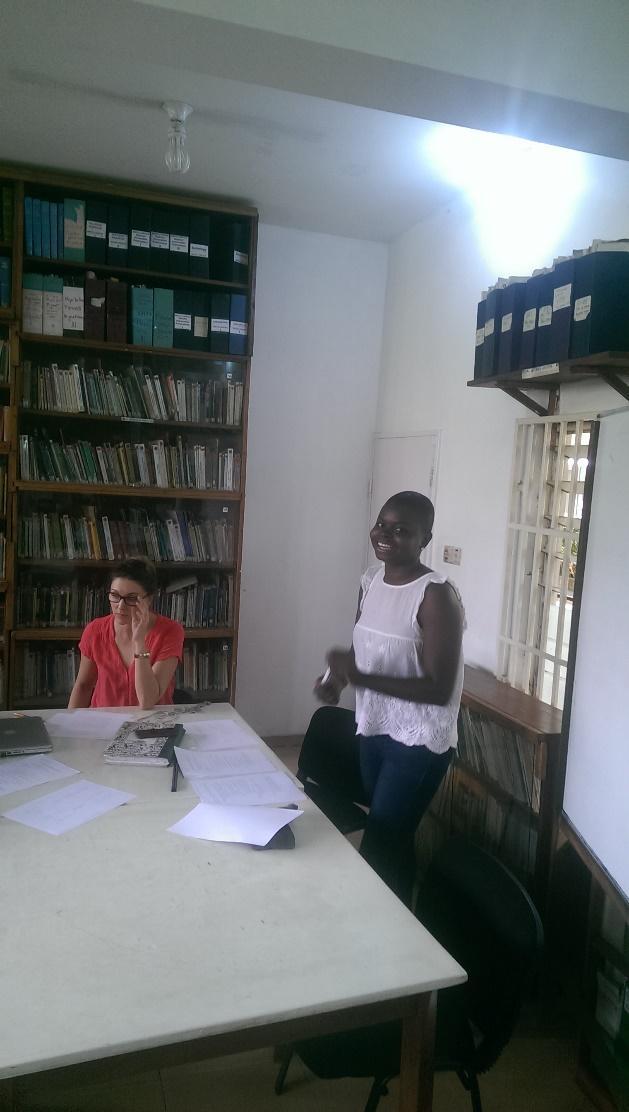IFRA training workshop: “Nocturnal Fieldwork and ‘Assisted’ Field Research” by Chrystel Oloukoi

Date: 25th of May
Location: IFRA-Nigeria's library
IFRA was pleased to organise a research training seminar on the 25th of May in our library led by Mrs. Chrystel Oloukoi entitled “Nocturnal Fieldwork and ‘Assisted’ Field Research”. She is a PhD student in African and African-American Studies at Harvard University. A geographer by training, her work has notably addressed power relations in nocturnal contexts in Lagos and Johannesburg. She has conducted field research in Ikeja (Lagos State) and Maboneng (Johannesburg) during which the issue of research assistantship was particularly sensitive and critical.
Mrs. Oloukoi started by reckoning that research assistants have contributed greatly to the historical development of anthropology and ethnography. Yet, they rarely figure prominently in the core work of the classic authors in the discipline. Indeed, the practice of research assistantship is born out of the colonial context and authors have often circumscribed their assistants to the margins of their own works (fieldnotes, diaries, footnotes, etc).
Although she has carried out her field research in South Africa without the help of an institutionalised research assistant but rather relying on friends during her excursions, Mrs. Oloukoi has relied on several professional (paid) research assistants while in Lagos advised by various parties. She reflected on both experiences as bringing about sets of advantages and inconvenient. Indeed, both parties shall examine the ethical, scientific and epistemological facets of research assistantship in order to institutionalise the role of the research assistant or the team.
As expected, a great share of the audience (comprising master and PhD students of the University of Ibadan in various fields of the social sciences and humanities) have worked or are currently working as assistants for both local and international researchers. Therefore, many took the floor to discuss their experiences. Some have indeed undergone sheer intellectual exploitation, misappropriation of their own work or even sexual and/or professional harassment through their relations with senior researchers. These issues are often combined with forms of intellectual racism in the case of foreign academics recruiting local researchers. Others have worked along with scholars who were respectful of ethical rules, although they have often experienced misunderstandings due to a vague definition of the researcher/research assistant dynamic. As a consequence, Mrs. Oloukoi recommends both parties to clearly delimit the roles and expectations of each prior to initiating a research collaboration.

Chrystel Oloukois starting the seminar

A student sharing research assistant experiences

IFRA fellows and the speaker after the seminar

A model of research assistantship as developed by Mrs. Oloukoi

Social Media
Mailing List